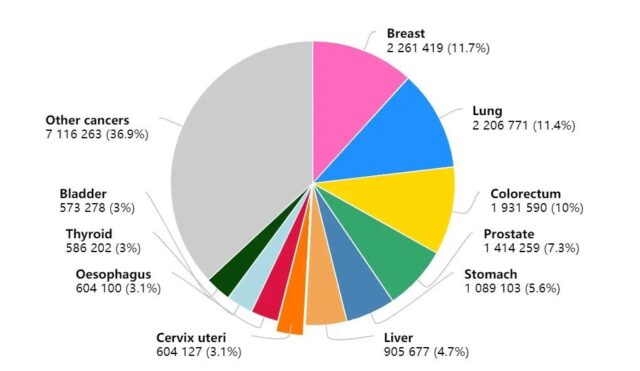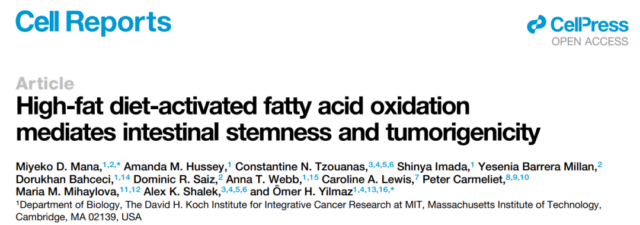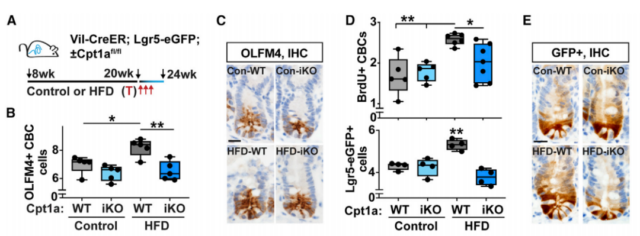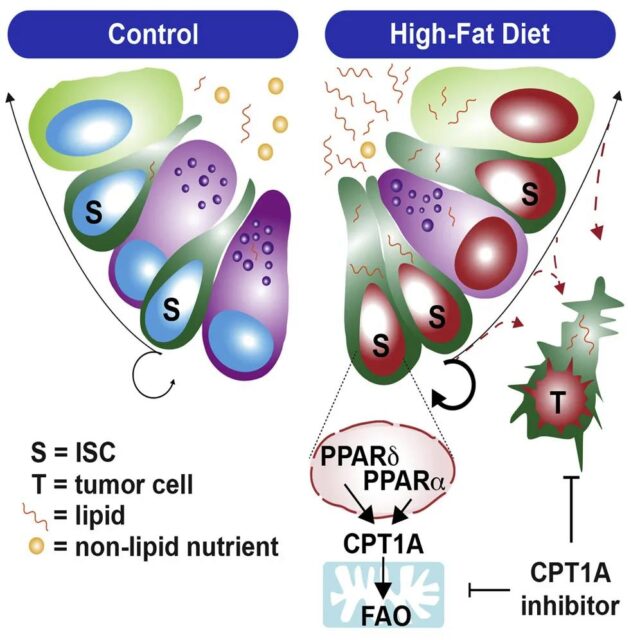Cell Journal: High-fat diet increases risk of intestinal cancer
- Aspirin: Study Finds Greater Benefits for These Colorectal Cancer Patients
- Cancer Can Occur Without Genetic Mutations?
- Statins Lower Blood Lipids: How Long is a Course?
- Warning: Smartwatch Blood Sugar Measurement Deemed Dangerous
- Mifepristone: A Safe and Effective Abortion Option Amidst Controversy
- Asbestos Detected in Buildings Damaged in Ukraine: Analyzed by Japanese Company
Cell Journal: High-fat diet increases risk of intestinal cancer
Cell Journal: High-fat diet increases risk of intestinal cancer. Colorectal cancer is the malignant tumor of the digestive tract with the highest incidence.
The latest global cancer burden data released by the World Health Organization (WHO) International Agency for Research on Cancer (IARC) in 2020 shows that there will be 1.93 million new cases of colorectal cancer worldwide in 2020 , Second only to breast and lung cancer. In mycountry, the incidence of colorectal cancer ranks second, second only to lung cancer.

The top ten cancers worldwide in 2020
Obesity is a recognized risk factor for cancer in many tissues including the intestine. Among all risk factors for colorectal cancer, diet may be the most easily controlled environmental and lifestyle factor. For decades, doctors and nutritionists have been urging people to limit the intake of high-fat foods in order to reduce the risk of diabetes, heart disease and cancer caused by excessive high-fat diets.
However, the exact link between a high-fat diet and the occurrence of colorectal cancer is not yet fully understood. Clarifying this problem will provide new and important clues to the formation and treatment of early cancers such as colon cancer.
On June 8, 2021, researchers from the Massachusetts Institute of Technology in the United States published a research paper titled: High-fat diet-activated fatty acid oxidation mediates intestinal stemness and tumorigenicity in the Cell Reports online.
The study showed in more detail how a high-fat diet triggers a series of molecular cascades that lead to the occurrence of intestinal cancer, and provides new ideas for the study of the mechanism of colorectal cancer and the prevention and treatment of colorectal cancer.

When food is broken down and enters the intestine, intestinal stem cells (ISC) on the inner surface of the intestine interact with them and sense and respond to fat levels through high-fat sensor molecules in the cells.
In this process, peroxisome proliferator-activated receptors (PPARs) are involved in inducing cell programs and increase the risk of cancer. However, because PPARs have three subtypes of PPARα, PPARγ, and PPARδ and their functions are complex, the exact mechanism is still not yet available. clear.
The research team first tried to explore the role of a single PPARα and PPARδ. They gave the mice a long-term high-fat diet or a normal diet, while carefully monitoring the activities of individual PPARα and PPARδ. The research team first knocked out the PPARδ gene and compared it with PPARα knockout mice, and found that PPARδ knockout did not affect The occurrence of phenotype (the PPARα gene has been confirmed to play a role). Therefore, the research team believes that there is a compensation effect between PPARα and PPARδ, which is required for the high-fat diet phenotype in stem cells.
High-fat diet is rich in long-chain fatty acids. Cpt1a is a mitochondrial protein necessary for transporting long-chain fatty acids to mitochondria in the process of cellular fatty acid oxidation and metabolism.
The research team further constructed Cpt1a knockout mice and gave them a high-fat diet, and found that Cpt1a knockout can prevent the expansion and proliferation of stem cells and prevent the formation of intestinal tumors.

In addition, these research data can track the entire cancer development process from the diet process to tumor formation. The fat in the obesity-promoting high-fat diet (HFD) is broken down into free fatty acids, which are transported to the mitochondria to produce more energy, which promotes the reproduction, growth and regeneration of stem cells in the intestinal tissues, thereby greatly increasing the possibility of genetic mutations , Induced the occurrence of colorectal cancer.

More importantly, it removes the important mitochondrial protein CPT1a in the process of fatty acid oxidation, which prevents the dryness and tumorigenic effects of PPARs while ensuring intestinal safety.
All in all, this research provides a possible molecular mechanism for colorectal cancer caused by a high-fat diet, and provides new ideas for the treatment and prevention of human colorectal cancer and other intestinal cancers.
(source:internet, reference only)
Disclaimer of medicaltrend.org
Important Note: The information provided is for informational purposes only and should not be considered as medical advice.



